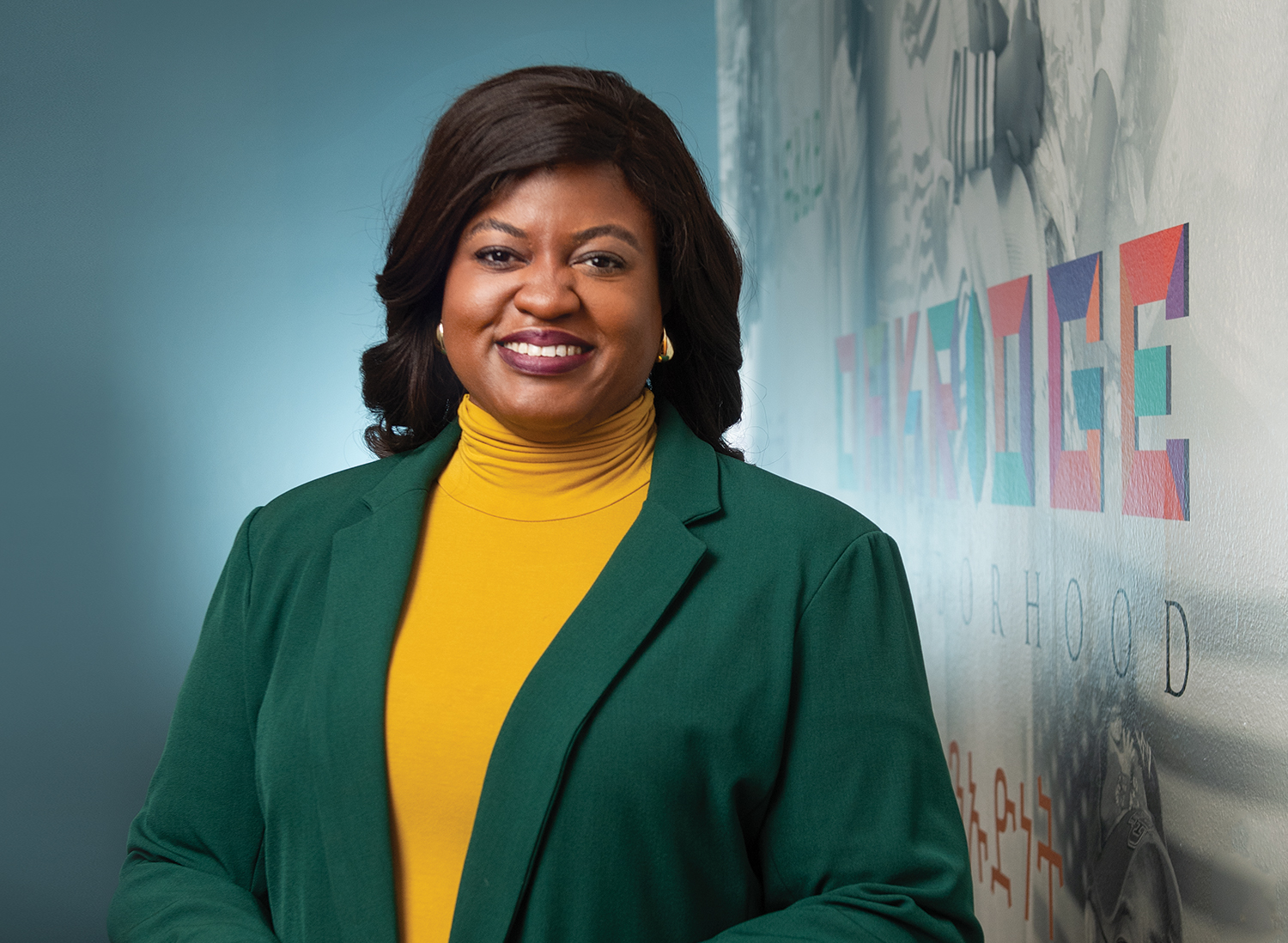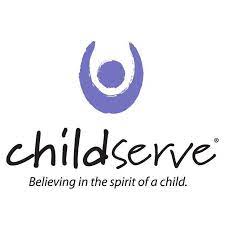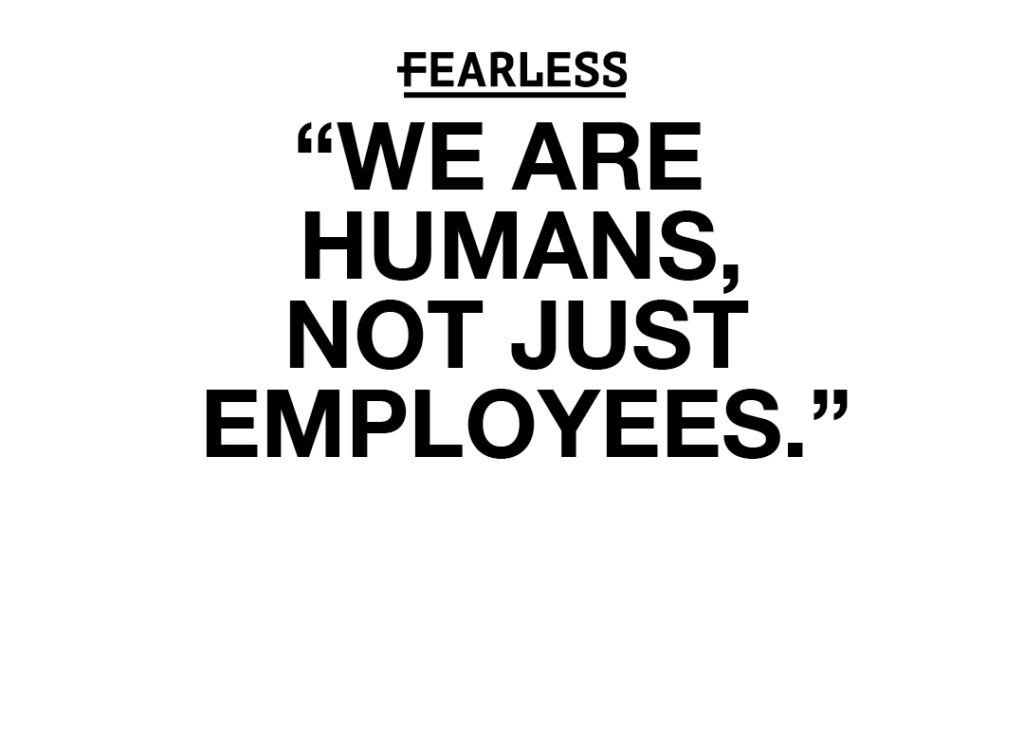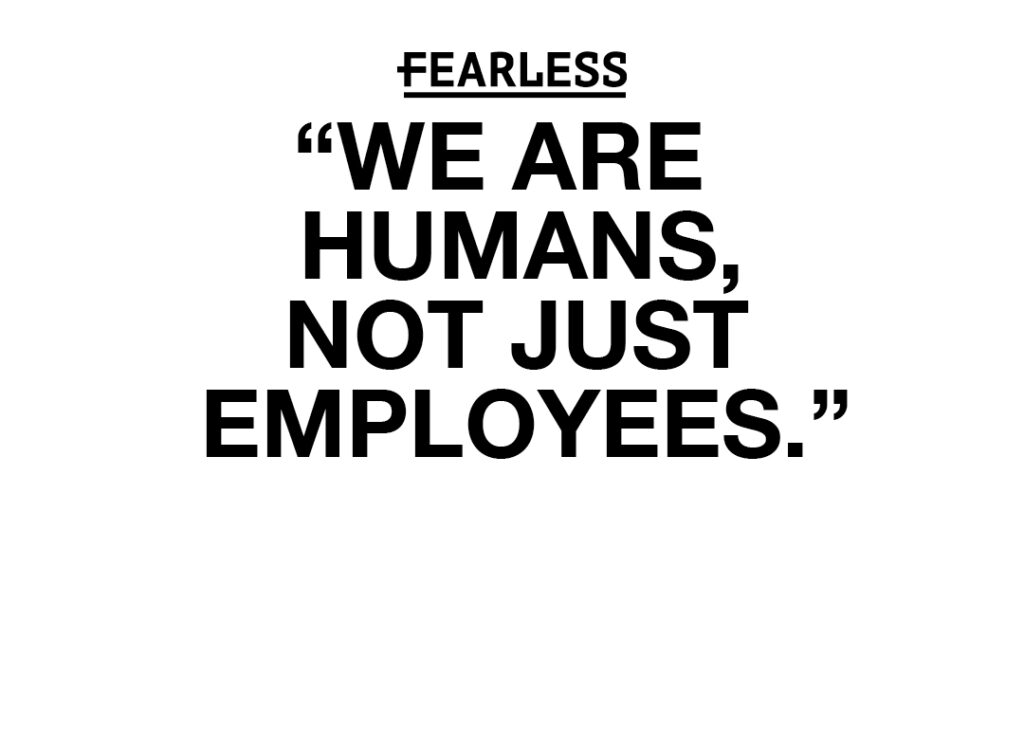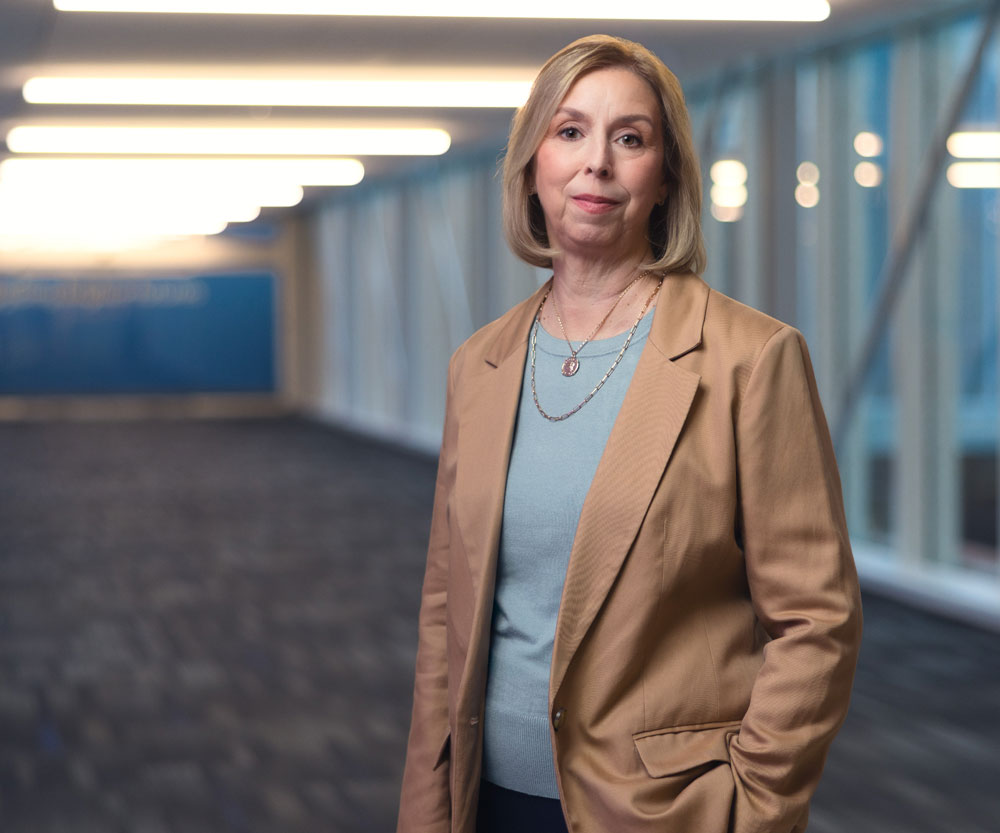Keeping a community gem shining
DeJear works to honor Caldwell-Johnson’s legacy as she prepares to bring Oakridge Neighborhood’s strategic plan to life
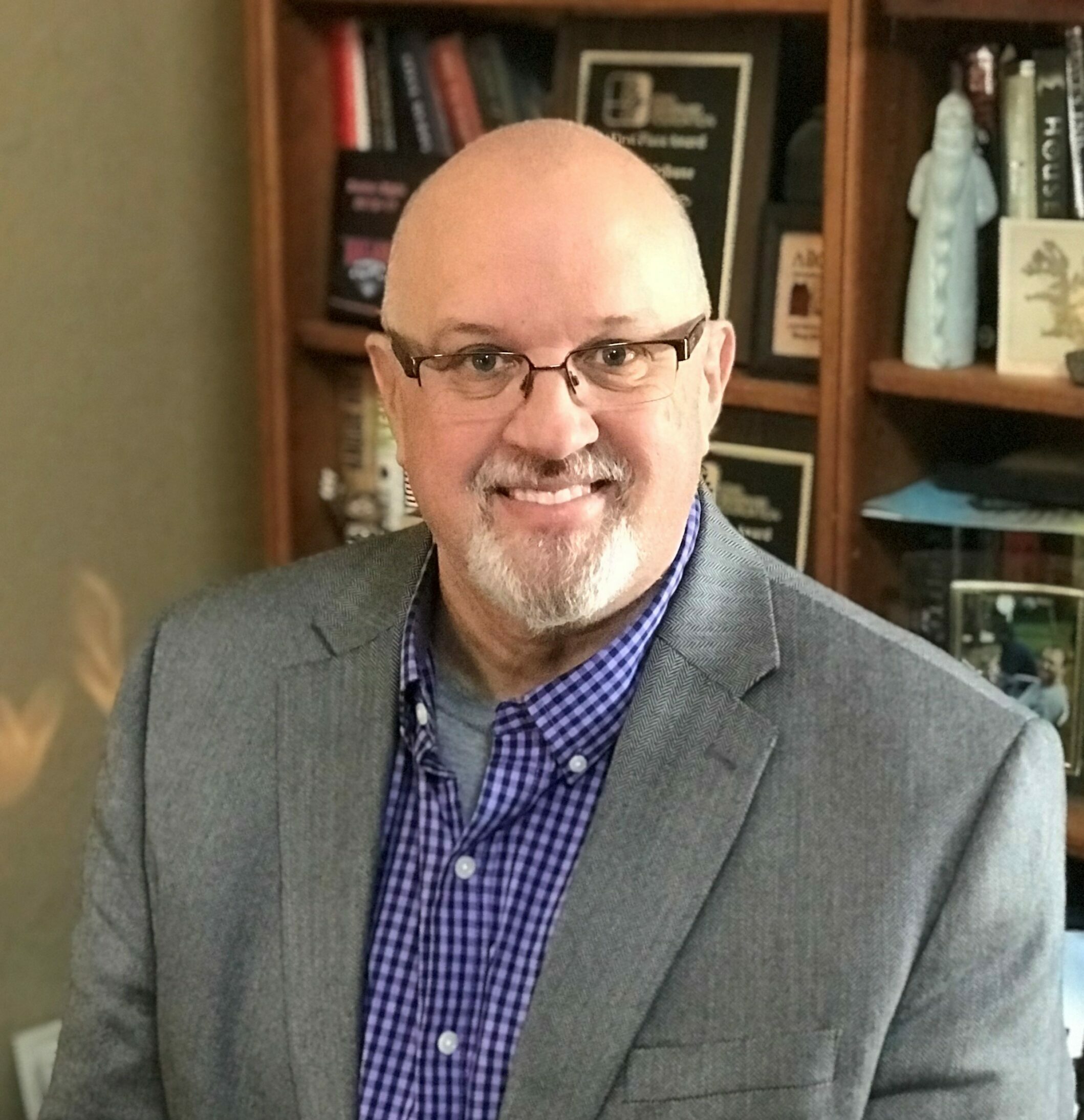
Michael Crumb Dec 13, 2024 | 6:00 am
9 min read time
2,059 wordsBusiness Record Insider, Nonprofits and Philanthropy, Statewide NewsDeidre DeJear remembers attending Teree Caldwell-Johnson’s memorial service, walking away not feeling sad or with a sense of loss of her friend, but inspired.
She said there were so many stories that were shared during the service about Caldwell-Johnson’s influence on the community that DeJear said she went home and made the decision that she needed to step up and do more.
It was that inspiration that led DeJear to decide to apply for the position of CEO and president of Oakridge Neighborhood, a position Caldwell-Johnson held for 20 years until her death from cancer in March.
DeJear is the owner of Caleo Enterprises, an organization that works to develop and implement financial education and small-business development throughout Iowa. She also has run for statewide political office and managed political campaigns, including Caldwell-Johnson’s 2013 race for school board, where the two of them met and became friends. DeJear, an alumna of Drake University, began her professional career with Bankers Trust.
She also served on a volunteer committee for Oakridge’s Breakfast at Tiffany’s fundraiser and later became a consultant for Oakridge, helping the organization’s marketing and storytelling.
DeJear started in her new role leading Oakridge Neighborhood on Oct. 7, and the Business Record recently sat down with her to learn more about her decision to apply for the position and her approach to continuing the mission Caldwell-Johnson began. Her responses have been lightly edited for brevity and clarity.
What about this position intrigued you?
It wasn’t until the day of her services that it dawned on me because this was not a role that I wanted to be responsible for filling at all because that would mean she would be gone. I remember going to the hospital and hospice in February and talking to Teree about what the future of Oakridge would look like. She wanted strong applicants to apply, and we were going to try to make sure, but in my head there was not going to be a need. There shouldn’t have been a need for us to try and find a replacement for her. But it wasn’t until her services. It was a beautiful service, lots of incredible tributes. It was embodying her but also embodying the strength of our community. You don’t typically walk away from a funeral inspired to go and do more things. You might feel a little bit more settled about losing someone. You might feel good about seeing family or friends, but I was inspired after her service. As I was sitting in the living room, I said, “You know, now that I’m thinking more about this Oakridge role, it makes sense for me to apply.” The reason is because I’m a huge fan of ecosystem building. I believe that we, our community, have everything that we need in the moment to do good. This was an organization that was based on so many different components: housing, early childhood, workforce development, youth and other services that are about wrapping your arms around an individual to make sure they have a pathway to success. Whatever they want their dreams to be, they can come to fruition through working through this organization. So that is really what attracted me to the role. This is an important gem in our community. I feel strongly about ensuring that this gem continues to shine.
Did Teree talk to you about applying for the role?
It was before she got sick. She was working on strategic planning and she asked if this was a role I would ever be interested in. It was right after my governor’s race. We both have February birthdays so we went out and she asked if I’d ever be interested and I said, “Teree, I’m here to help Oakridge however I can, but this is your job.” And that was the last time she and I talked about me having interest in Oakridge, and a few months later she found out she was ill. After that, there had been no conversations about it. She knew I loved the organization dearly and I was going to make sure I could do whatever I could to make sure a strong pool of candidates existed for the organization to pull from. That was my commitment. To get some good applicants and make sure that people felt encouraged to apply.
Is there a challenge in following in Teree’s footsteps and making this position your own?
There is a challenge that exists, but following her legacy isn’t a challenge for me because I know she would not want anyone to fill her shoes. She would want someone to come and continue to invigorate the community using whatever flavor they wanted to add to the equation. That was one thing I really appreciated about her and my relationship. She didn’t need me to be someone other than who I was, so because she didn’t need that from me she would not expect me to come in and fill in her shoes. I think there is an honor that I expect of myself in honoring her legacy, but there is no challenge in trying to be like her. The challenge is to continue the good that she did for this organization and for the people who are served by the organization.
What have your objectives been in the first weeks in your new role?
I walked into this knowing a little about the organization but I didn’t want to be presumptuous. I also didn’t want staff to think that I knew it all and that things were about to be the way of my mind. Because I believe in ecosystem building, much of the work I do is built upon collaborative relationships and partnerships. So I’ve set out to meet intensively with staff, connecting with staff because I want to learn the organization through their lens. I want to learn why they’re incredibly passionate about the work they do. My goal is to see what they’re doing, assess what they’re doing and see where I can add value to the work they are doing. I’m also incorporating what I call Workday Wednesday, where I spend every Wednesday working with a different department. I spend half a day with them, working in their space and spending lunchtime with them. So I’m talking one-on-one with staff, learning how they think their department is doing, what they would like to see done differently, what they are proud of in their department. I’m very lucky that Oakridge has a strong strategic plan and I look forward to making that vision come to life for the organization.
What have you learned so far from those conversations?
We have to infuse technology into every aspect of the work that we do. That will not only help aid in our service delivery but it’s also going to help us be better communicators to our clientele and to be better communicators among departments. I also want to make sure that financial coaching is embedded into our service delivery. We embed it into aspects of our service delivery and it has reaped incredible rewards, so I want to see us go the distance there to more folks on our campus. The other area is we have a number of service delivery opportunities that exist on our campus but our campus is only so big, so there’s part of the strategic vision to go beyond the 17 acres that we already have here so we can impact more people. I want to build upon that ecosystem and be able to meet people where they are both on campus and off campus.
What would that look like?
We have a number of housing entities that exist throughout our community. We have developers who have built housing for low-income individuals. They may not be experts in service delivery, but these developers have a heart to see individuals succeed. They want to see residents do well, so there is an opportunity for Oakridge to go and provide those additional services on their respective campuses. There’s also an opportunity for us to build more. We have a little more than 300 units between the Oakridge campus and then Silver Oaks. There is more opportunity for housing because the need is out there and our little 300-some-odd units do not scratch the surface of the need, but we’re tested and proven in this arena where we know we could do more in this space. Talking about a housing crisis, we hear it often, so rather than merely be part of the discussion we can be part of the solution to fulfill those needs that exist throughout the community. We know we’re equipped and we’re capable, so why not?
What makes you tick and get up every day motivated to do this job?
This is a puzzle from my vantage point, and my job is to pull all the pieces together and show everyone the vision they have created with their individual contributions. That’s what draws me here. I started this job on Oct. 7, and on Oct. 8 something really sad happened. I had to go and put my dog down. I was at work and I literally dropped everything and went to Ankeny and had to put him down. The typical me would have probably gone home right afterward, but I came here to work because from my vantage point there was happiness here. There was joy here and I wanted to be a part of it. I didn’t want to go home and cry some more. I didn’t want to go home and sulk. So that was evidence to me that at that moment that this was a really good space for me to be in. If I have to tell one of the loves of my life goodbye and come right back to work and get to it, it wasn’t as if I was trying to escape it. I wanted to be here.
What’s next for Oakridge under your leadership?
Growth and more growth. I want us to do our due diligence to make sure that we have the capacity to serve more, and the appearance is we do, but I want us to make sure we’re delivering the best type of service that we can and that means that I’m doing my due diligence to make sure that the staff has what they need to be successful. That’s what is on the horizon for Oakridge. Just strengthening our team so that they’re better equipped to serve. I want to be clear that nothing needs to be fixed because nothing is broken, so it’s really aspirational, walking into the best-case scenario you possibly can have and see how can you level up now and meet the larger needs of the community.
What is something the community may not know about you?
I have not been one of those individuals to wear my faith on my sleeve, but I’m at a point in time in my life where I don’t care if people know that I’m a Christian. I used to try to be respectful of others and as a result did not talk about my faith. But I have this strong desire to go to heaven, and I feel as if the work that I do here on Earth is my ticket. Like God gave me a certain set of gifts and talents and that my job is to use those gifts and talents to add value to others. And this is just another opportunity for me to do it. One of the best opportunities for me to do it is working at Oakridge because you can’t avoid people in this work. You can’t avoid service in this work. You can’t avoid care. I’m in it because I don’t want to escape it. There was a point in my life where I thought there was another avenue for me to do good for people, to build ecosystems to strengthen them and add value to them. There’s multiple ways, so that’s what I’m leaning into right now and adding value to other people because it makes me smile. It makes me happy. It makes me feel that this idea of life, liberty and happiness that is owed to me can be delivered to other people given a blueprint to do so.

Michael Crumb
Michael Crumb is a senior staff writer at Business Record. He covers real estate and development and transportation.

